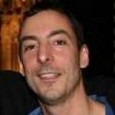Dr. Sun, the source of my fascination with use of this “qi tonic” and reported CD4+ T-cell boosts, was in the clinic with me yesterday. While discussion of “dirty” infections--HIV, HBV, HCV, probably even herpes and HPV--is generally discouraged at my school; and the mere existence of same sex coupling in the world (certainly not in South Korea or China!) both unacknowledged and not so secretly abhorred, I felt no such compulsion to toe the unspoken line of respectability and--after all, he was the one who brought it up, seeming to be one of the more enlightened among our faculty--approached him at his desk with some simple follow-up questions.
Had he, or anyone else, published anything--anywhere--about this effect he was seeing in his HIV+ patients? No. Was it safe to recommend Si Jun Zi Tang to folks who might not otherwise have the textbook symptoms for prescription of this, admittedly oh so mild, qi tonic? Yes, but he would actually suggest trying a bit stronger version of Si Jun Zi Tang: Bu Zhong Yi Qi Tang (Tonify the Middle and Augment the Qi Decoction) because in addition to containing ginseng (or more likely, codonopsis: the more affordable ginseng stand-in), atractylodes (white) rhizome, Tuckahoe sclerotium and licorice root, Bu Zhong Yi Qi Tang adds another qi tonic (astragalus), a blood tonic (angelica root), a qi regulator and digestive aid (aged tangerine peel) and two other herbs for stress, a “sensation of dragging,” and the elimination of toxins. Was it safe to give this large a dose of astragalus root to someone with hypertension, pre-hypertension or who might otherwise be worried about his or her blood pressure? Dr. Sun says, enigmatically, that “hypertension is complicated” and that there are studies that suggest Huang Qi (astragalus root) helps hypertension as well as studies that suggest that it exacerbates it. From his clinical experience he says that he suspects large doses (> 12 grams) have a ameliorative effect on hypertension while small doses (< 9-12 grams) may exacerbate it. Sounds as if I will have to look into this more closely.
A friend of mine in New York, on stable and “fully” suppressive antiretroviral therapy for five years or so now (after a rough first year with chronic low- (and sometimes not so low) level anxiety, depression, even panic at times from the Sustiva (efavirenz) in his otherwise ridiculously convenient Atripla once-a-day tab), but preferring a CD4 cell count closer to 800 than to 600, has generously agreed to experiment on himself with this herbal formula.
A critical Nota Bene, or two, here though: Dr. Sun emphasized that the best results from Chinese/Asian herbal medicine are achieved when the combination of herbs (“formula”) is tailored to the particular person’s symptoms and constitution. This is perhaps the most basic and important tenet (what lends this medicine both its profound power and its wonderful flexibility) of TCM. He also added that his patients had not taken so-called “patent” pills or capsules (from companies Golden Flower, Blue Poppy, Evergreen, NuHerbs and the like) but instead had drunk or mixed liquid decoctions or herbal powders that he had ordered for them from a Chinese herbal pharmacy or Koreatown.
Yes, even if the experiment meets with success (how exactly will success be defined?), it will still be the proverbial and much maligned “N of 1.” But over the past 20 years or so of observing, participating in and writing about HIV clinical research, I have come to believe more and more in the Ns of 1 (that is, personal experience, person by person) of the clinical research world and less and less in the perfectly pre-screened, privately controlled (and often secretly manipulated), hotly hallowed, large scale, Randomized, Double-Blind, Placebo-Controlled clinical trial. But then maybe I have grown unduly cynical from working too closely with pharmaceutical companies and CME companies (to supplement my meager TAGline earnings) over the years.
Mike Barr is a board certified acupuncturist and herbalist and can be reached at Turning Point Acupuncture (just off Columbus Circle across from the Mandarin Oriental hotel) and at Suite 904 in the Flatiron District. His interests and experience include sports acupuncture, pain syndromes, liver health, immunological support, herbal and acupuncture approaches to getting off/putting off prescription medications of unsatisfactory or unclear benefit, and in helping to manage the side-effects of other necessary and life-saving biomedical interventions. He has also been busy exploring the application of Chinese herbal therapies, and specific acupuncture protocols, for all aspects of sexual health and anti-senescence.





Comments
Comments